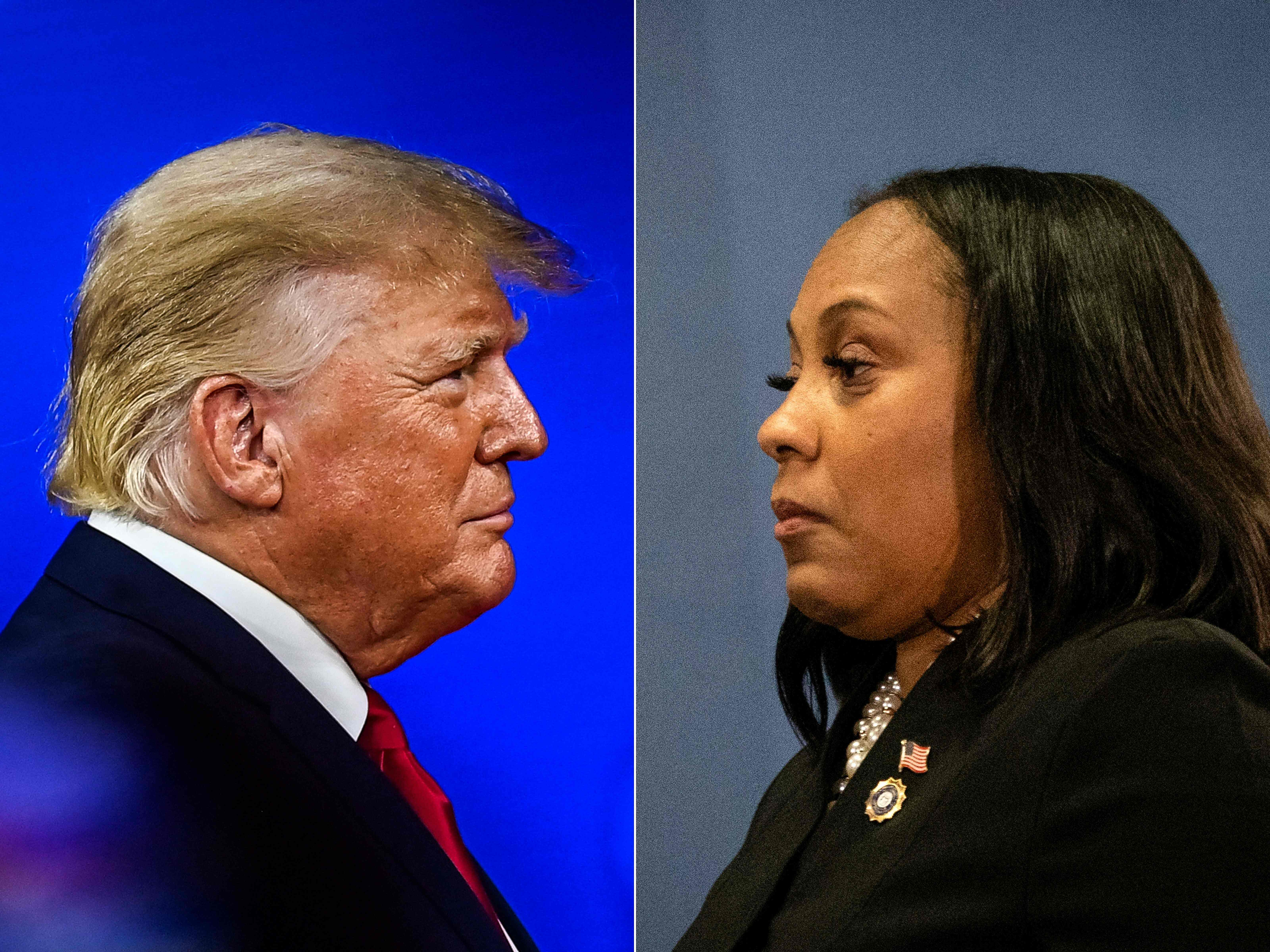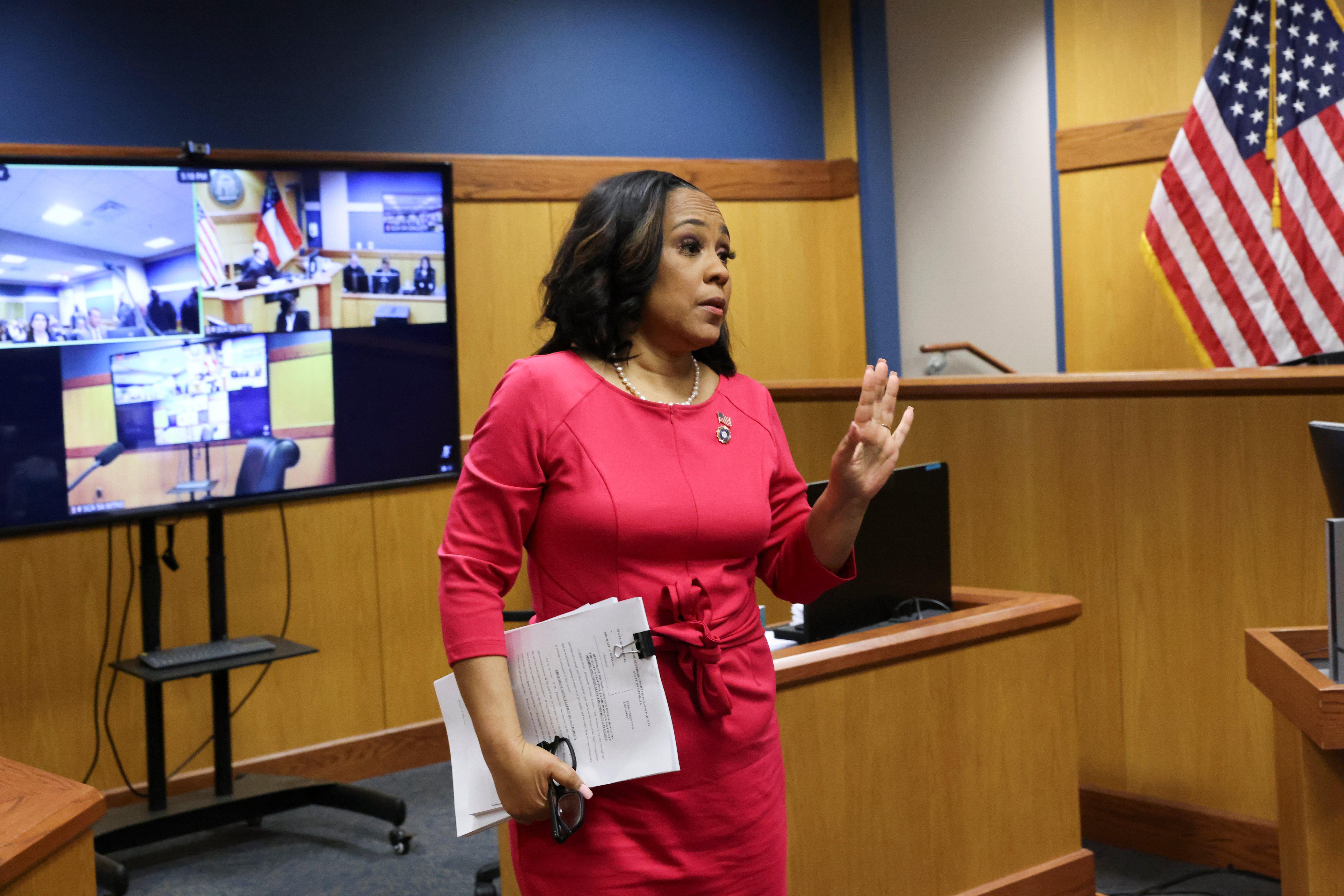A ruling from Georgia’s Court of Appeals removes Fulton County District Attorney Fani Willis from the sprawling election interference case against Donald Trump and more than a dozen of his allies, upending the ongoing criminal prosecution of the president-elect weeks before he returns to the White House.
A panel of Republican-appointed judges determined Thursday that the district attorney’s former romantic relationship with a special prosecutor who was hired to take on the case amounted to a “significant” conflict of interest that warranted her dismissal from the prosecution team.
The court, however, did not agree to the former president’s “extreme” argument to dismiss the case altogether, potentially leaving the case up to another prosecutor.
Attorneys for Willis have filed notice of her intent to appeal to the court’s decision. Representatives from the district attorney’s office did not immediately respond to The Independent’s requests for comment.

“This decision puts an end to a politically motivated persecution of the next President of the United States,” Trump’s defense attorney Steve Sadow said in a statement.
The case brought by Willis’s office in 2023 accuses the former president and his co-defendants of leading a “criminal enterprise” to overturn his loss, using a so-called “fake elector” scheme to falsely assert his victory, seizing voting machines, intimidating election workers, and pushing the state’s top election official to “find” votes he would need to win.
Trump and more than a dozen co-defendants — including allies Mark Meadows, Rudy Giuliani, Jeffrey Clark and John Eastman — were charged under the state’s RICO Act, used to target organized crime, and faced a long list of other charges tied to an alleged scheme to subvert the state’s election results.
Four of Trump’s original co-defendants — including attorneys Kenneth Chesebro, Jenna Ellis and Sidney Powell — pleaded guilty to some charges last year after reaching plea deals with prosecutors.
In March, following several days of hearings on allegations that Willis financially benefited from hiring Nathan Wade, with whom she was once romantically involved, Fulton County Superior Court Judge Scott McAfee determined that either Willis or Wade should step aside.
Wade then submitted his resignation.
Trump and his co-defendants appealed, arguing that “nothing in the law — anywhere — says that the remedy for an appearance of impropriety is the disqualification of one apparently conflicted lawyer but not another.”

Lawyers representing the district attorney argued that the case rested on Trump’s attempts to publicly “impugn” and smear her as political payback, and that the testimony and documents presented to the court showed “no evidence that the district attorney has financially benefited at all.”
The allegations against Willis relied on salacious rumours, gossip and innuendo designed to “embarrass and harass” her, all while indefinitely delaying the criminal case against Trump and his allies, lawyers for Willis argued in court.
Thursday’s ruling from the Republican-appointed judges does not throw out the case against Trump and his co-defendants altogether, however.
“While this is the rare case in which DA Willis and her office must be disqualified due to a significant appearance of impropriety, we cannot conclude that the record also supports the imposition of the extreme sanction of dismissal of the indictment under the appropriate standard,” judges wrote.
A dissent from Judge Ben Land said he was “particularly troubled” by the majority’s ruling, which took the trial court’s decision “and converted it to something else entirely.”
“It is not our job to second-guess trial judges or to substitute our judgment for theirs,” he added. “We do not find the facts but instead defer to the trial court’s factual findings where there is any evidence to support them.”
The case is one of two state-level criminal prosecutions of the former president.
On May 30, a jury in Manhattan criminally convicted Trump on 34 felony charges of falsifying business records in connection with a hush money scheme to cover up politically damaging stories of his affairs leading up to the 2016 presidential election.
After protracted legal battles, the special prosecutor overseeing two federal criminal cases against the former president has effectively frozen them, for now, as the Department of Justice was soon to enter unprecedented territory with the prosecution of a sitting president.







